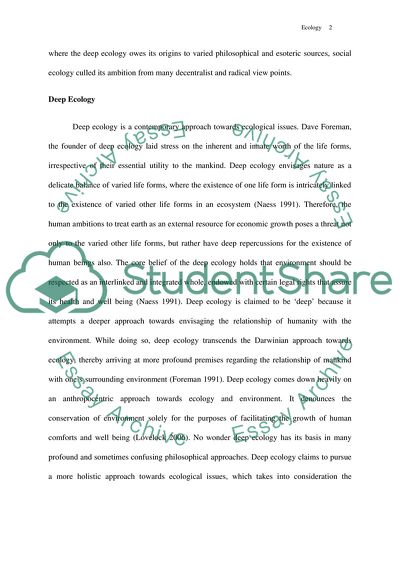Cite this document
(Deep Ecoloy Vs. Social Ecology (Foreman Vs. Bookchin) Essay Example | Topics and Well Written Essays - 2000 words, n.d.)
Deep Ecoloy Vs. Social Ecology (Foreman Vs. Bookchin) Essay Example | Topics and Well Written Essays - 2000 words. https://studentshare.org/environmental-studies/1777453-deep-ecoloy-vs-social-ecology-foreman-vs-bookchin
Deep Ecoloy Vs. Social Ecology (Foreman Vs. Bookchin) Essay Example | Topics and Well Written Essays - 2000 words. https://studentshare.org/environmental-studies/1777453-deep-ecoloy-vs-social-ecology-foreman-vs-bookchin
(Deep Ecoloy Vs. Social Ecology (Foreman Vs. Bookchin) Essay Example | Topics and Well Written Essays - 2000 Words)
Deep Ecoloy Vs. Social Ecology (Foreman Vs. Bookchin) Essay Example | Topics and Well Written Essays - 2000 Words. https://studentshare.org/environmental-studies/1777453-deep-ecoloy-vs-social-ecology-foreman-vs-bookchin.
Deep Ecoloy Vs. Social Ecology (Foreman Vs. Bookchin) Essay Example | Topics and Well Written Essays - 2000 Words. https://studentshare.org/environmental-studies/1777453-deep-ecoloy-vs-social-ecology-foreman-vs-bookchin.
“Deep Ecoloy Vs. Social Ecology (Foreman Vs. Bookchin) Essay Example | Topics and Well Written Essays - 2000 Words”. https://studentshare.org/environmental-studies/1777453-deep-ecoloy-vs-social-ecology-foreman-vs-bookchin.


